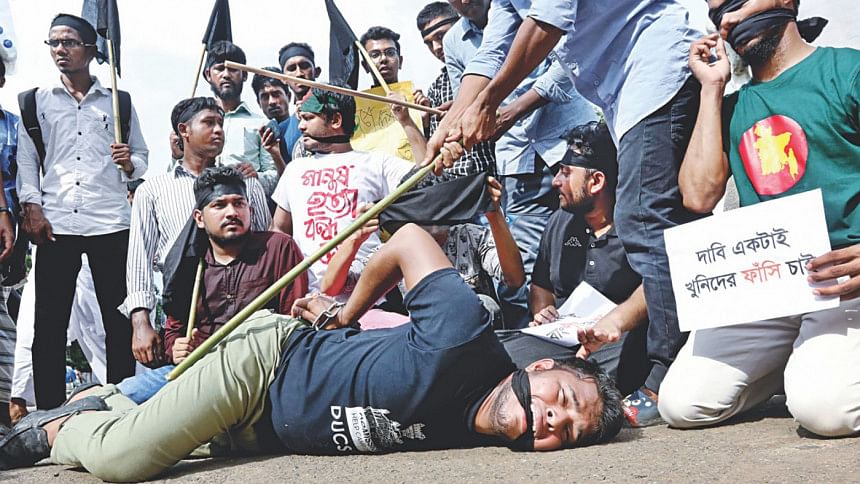Freedom Under Siege

In the light of recent events, to think that we can freely speak our minds would be a grave mistake.
Abrar, a sophomore at Buet, was beaten to death by some BCL students. His last Facebook post had been a brief commentary on the river distribution crisis developing between Bangladesh and India. As if his grieving family's pain wasn't enough, his brother was allegedly beaten up by the police amidst the chaos. Later, Abrar's brother's Facebook account, where he condemned the police, was reportedly taken down.
A CCTV footage, which shows how Abrar was taken outside after the beating, has been circulating on Facebook. That is enough proof to persecute the perpetrators. But we have to wait to see what actually happens. Conversations are blooming online, making us wonder how student politics has yet to make significant improvements. Condolences are being shared, words of grief pouring all over, crowding our newsfeed.
At a university, one is not supposed to fear for their life, under the shadows of any organisation. One should not be policed about their online activity; about the way they think. One should be able to think valid things, as they please, without having to worry about the wrath of higher powers within an educational campus. A university should be the last of all places where any form of freedom is stifled, where one has to face the consequences of speaking their mind. After all, the act itself cancels the purpose of a university—a proper education.
The violent crackdown on free speech and dissent worries us all. It also makes us think: Has education truly fulfilled its purpose? Does education only mean memorising information, formulae, regurgitating them, securing top scores, passing with flying colours in the BCS examination? If education did fulfil its purpose, we would not be seeing "students" taking up arms to carry out violent acts, we would not see violent attacks on free thinkers.
Abrar's chapter will go down in history as yet another tragic event. And perhaps we will reach no solution. Perhaps, the exercise of free speech will keep resulting in fatal consequences. Perhaps, there will be no room for criticism. Perhaps our collective psyche will keep getting wounded and more wounded.
We will go on with our lives, our voices stifled and censored heavily. We will trade our voice for safety and stability. But Abrar will not return to life. Nor will Sagor, Runi, Avijit, and many, many more unfortunate souls.
It is relevant to say that in this day and age, the written word is important. It has become necessary more than ever. It is powerful, enchanting, persuasive. An ecosystem of freedom will fail to thrive without it. And that is why, it is feared by those who feel threatened by it and have things to worry about. They call such freedom "incendiary", "seditious", "provocative" or some other negative term.
The written word can get you in jail or even killed. It has killed Jamal Khashoggi, put many on trial. The persecution of Turkey's novelists, publishers, Saudi and Hong Kong based activists and booksellers serve as clear examples.
It is as if the written word can only work its charm when a price has been paid. Dearly. And we do not want to welcome a world where that is the trend, where there is a warfare on how we think, what we think, where we are "seditious" just because we have valid concerns.
In this world, the fate of free speech appears bleak. It means we have to keep persevering, maybe shed more blood. But for how long? Life is precious. Nobody wants to lose it.
Is shedding blood easy? Is persevering, too? As our hearts remain suffused with questions, longing for answers, we need to take a moment to salute those who speak up, those who resist, those who do not bow down to injustice and deceit, even when the consequences are deadly.
The writer is a university student.

 For all latest news, follow The Daily Star's Google News channel.
For all latest news, follow The Daily Star's Google News channel. 



Comments